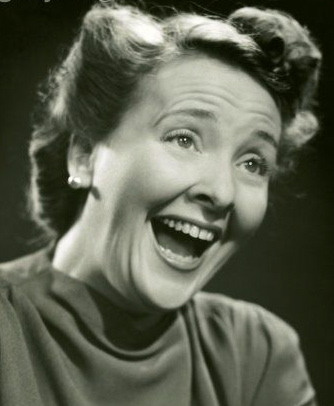Sinfonietta’s night at the musical comedy club provokes mixed guffaws

The Chicago Sinfonietta came up with an offbeat theme for Monday night’s concert at Orchestra Hall: “Laughter!” with works by Milhaud, Ibert, Michael Daugherty and that well-known master of standup comedy, Felix Mendelssohn.
Humor, particularly in classical music, is a subtle, subjective thing and no one—not even Mozart—really handled it with the vigor, ingenuity and resourcefulness of Franz Josef Haydn, who, amazingly, was absent from the program. Further, one key element of wit is surprise, so a lineup of works performed specifically because they are supposed to be amusing, immediately makes them less funny.
Still, while offering mixed chuckles, the generous if lightish program provided a worthy workout for the Sinfonietta musicians with four contrasted works.
![mmcolor1[1] mmcolor1[1]](https://chicagoclassicalreview.com/wp-content/uploads/2009/11/mmcolor11.jpg)
Monday’s concert also gave local audiences a chance to become reacquainted with Michael Morgan. The conductor was a highly visible local presence from 1986-1993 as assistant conductor of the Chicago Symphony Orchestra. For the past 20 years, Morgan has plied his trade in California as music director of the Oakland East Bay Symphony.
Morgan made an engaging host for the concert but provided more mirth with his wry introductions than with the baton. Ibert’s antic Divertissement led off the evening in rather low-key fashion. While the French composer’s suite is indeed, a “wonderful piece of fluff,” as Morgan said, the conductor didn’t put across much of the humor, directing in a literal, blandly competent style. For all its Boulevardier musical send-ups, this is not music that plays itself, and Ibert’s punchlines need to be juiced to make a stronger impact.
Beloved of uninhibited bassoonists everywhere Daugherty’s Dead Elvis, is a concerto in all but name, the composer’s characteristic mix of driving rock riffs, orchestral rimshots and It’s Now or Never good fun that is short enough not to wear out its welcome. Lewis Kirk was the admirable soloist, and while one could imagine a more robust-toned protagonist—and snappier accompaniment—it’s hard to criticize any classical bassoonist willing to dress up like Elvis.
Milhaud’s La Boeuf sur la toit brought out the full Sinfonietta forces for the first time. While played with more vitality and rhythmic bite, the work is a one-joke caprice with a Brazilian tune being repeated in different keys, which gets rather old long before the coda is reached. After three works and more than an hour of unbroken musical frivolity, one was ready to dive head-first into Verklarte Nacht
Instead we got Mendelssohn’s Italian symphony—hardly a fount of knee-slapping chord progressions, with the high spirits largely confined to the first movement. Still, the symphony at least provided some musical substance and received the best overall performance. The Andante would have benefited from more hushed string playing and the horns had their loopy moments. Yet, Morgan led a solid, generally responsive reading, judging the third movement’s ebb and flow nicely and bringing taut vigor to the closing Saltarello.
With this season’s guest conductor appearances a kind of public audition process to succeed Sinfonietta founder Paul Freeman, the orchestra’s powers-that-be should seriously consider inviting John McLaughlin Williams for an event. A Grammy nominee, with several outstanding recordings to his credit, Williams is one of the finest African-American conductors around, and it would be an inspired idea to add him to the roster of podium candidates.
Posted in Performances

